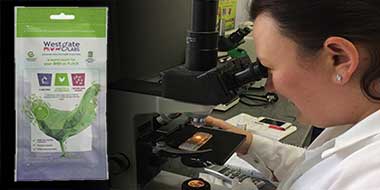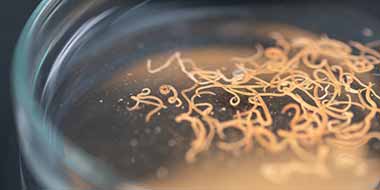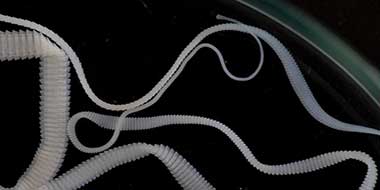Hairworms or Capillara are incredibly thin, almost as thin as hair which is where they get their name from. They are 1 to 2cm long and even in moderate infestations can cause significant damage to chickens. There are several species of Capillaria worm but they all live in the upper part of the digestive system, that is, the crop, oesophagus, and proventriculus. They can use earthworms as an intermediate host. Hairworms in chickens can be a real problem because of the internal damage they cause so need to be addressed promptly.
Hairworms cannot be seen with the naked eye so regular preventative worming or sending droppings samples to your veterinarian to perform a worm count is the only reliable way to prevent or check for hairworms.
Signs and symptoms of Capillaria worms
Diarrhoea (usually green), pale yolks, anaemia and birds looking hunched, wings sagging. Death with large infestations.
Treatment
Remember to rotate pasture to stop these worms from building up. Muddy, ‘poached’ areas encourage worms (and other nasty pathogens too) so try to avoid such areas. If the entrance to your chicken coop is muddy, lay some gravel that allows dropping to break up. Keep grass short to allow UV from sunlight to kill worm eggs.
As with all internal parasites, there are many treatments that will kill these worms. Worming Chickens provides some ideas for worming poultry. Flubenvet is licensed for use in poultry and will kill all common poultry worms.



